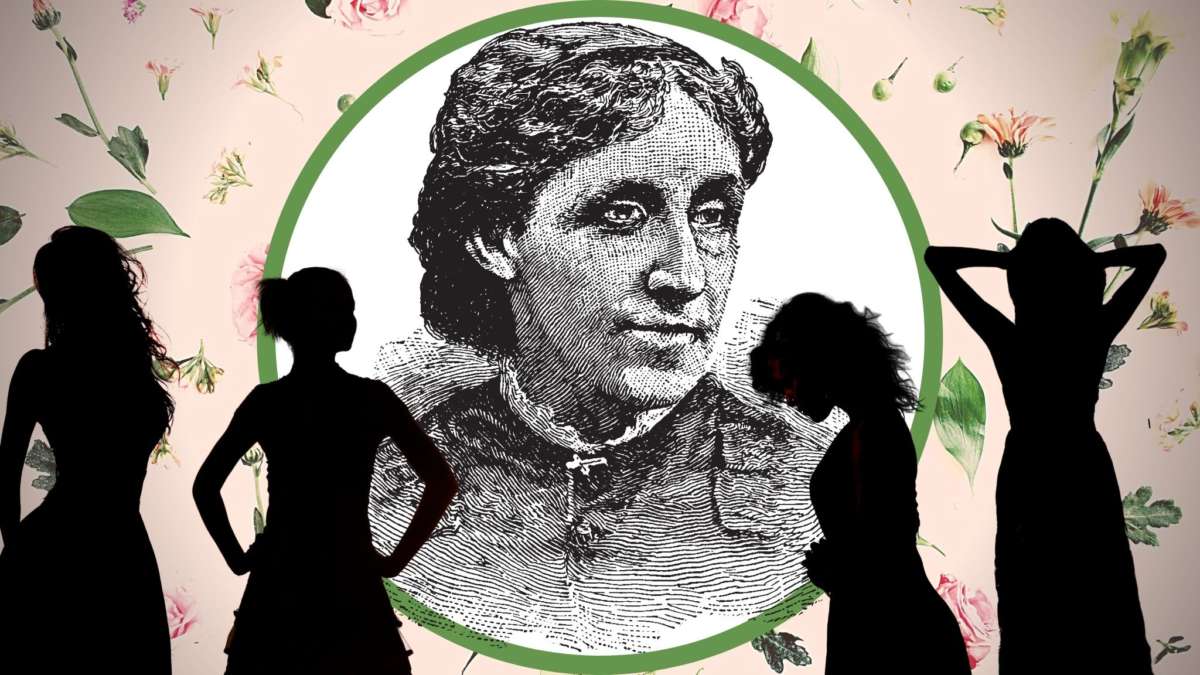November 29th, 2021 marks the 189th birthday of Louisa May Alcott, the author of Little Women. In a remarkable coincidence, Louisa shared this date of birth with her father, Amos Bronson Alcott. He was born in 1799 and she in 1832. Louisa and Bronson experienced other serendipitous moments, publishing the books that would establish their fame in the same month (September 1868 — Little Women and Tablets) and dying within two days of each other in 1888.1 However, they did not share the same temperament, he being the soft-spoken, serene and idealistic philosopher, and she the wild, boisterous yet practical and brilliant author. It took many years for father and daughter to overcome their differences, but they were devoted to one another in the end.
Abigail Alcott cherished the birthdays of her daughters and observed them accordingly: “I seldom omit these occasions for showing my children the joy I feel in their birth and continuance with me on earth.”2 Despite the family’s poverty, Abigail celebrated with elaborate parties, decorating the room with evergreen boughs and flowers, baking delicious cakes and including their friends. Family members wrote letters and verses, sang, staged theatricals and gave homemade gifts. Alcott ritual dictated that the birthday girl, crowned queen, would be escorted to a big chair. The guests would march around her, conferring their presents with a kiss.
Louisa celebrated her third birthday in Boston at Bronson’s Temple School, where father and daughter were honored with poems and gifts. She wore her crown of flowers and passed out plummy cakes to all the children. As the final child came to the table, Louisa realized there was not enough to go around and clung to the last cake. Mrs. Alcott whispered in her little girl’s ear that “It is always better to give away than to keep the nice things.” Through her tears, the three-year-old relinquished her cake. She would later remark that “the little friend received that dear plummy cake, and I a kiss and my first lesson in the sweetness of self-denial.” Thirty years later, Louisa would note the disappointment that often tinged her birthdays.3
Her father’s letters contributed to such feelings. As a yearly ritual, Bronson would present the birthday girl with an assessment of her life so far and how well she had progressed in moral and spiritual growth. He meant for his children to reflect his self-control and serenity. Unlike her more placid sisters Anna and Lizzie, Louisa was a high-spirited, willful child with a fierce temper. Her letters contained criticism of her faults and failings, along with an appeal to improve her behavior. On her eighth birthday in 1840, Bronson wrote, “Two Passions strong divide our Life / Meek gentle Love, or boisterous strife.”4
There were, however, many good moments to soothe the bad. On Louisa’s seventh birthday, she received a pretty doll made by her mother, which included a note saying that dolly would be the quiet playmate for her active daughter and that she should be a kind mama.5 That doll remained Louisa’s constant friend for the next seven years. A new companion replaced dolly as Louisa turned fourteen when Abigail gave her a writing instrument of her own with this verse:
Oh, may this pen your muse inspire,
When wrapt in pure poetic fire,
To write some sweet, some thrilling verse …6
Louisa cherished both gifts from the mother who always believed in her.
Momentous occasions marked some of Louisa’s birthdays. In 1843 when she turned eleven, the Alcotts were nearing the end of their utopian experiment at Fruitlands. Her parents’ marriage nearly broke up as a result, and on November 29th of that year, it was still unclear what would happen and how the family would survive. Recognizing writing as therapeutic for her daughter, Abigail wrote a note encouraging Louisa to transcribe her thoughts and feelings in her diary as the epitome of her life.7
Many years later, on her thirtieth birthday, Louisa made the life-changing decision to volunteer as a nurse during the Civil War. Her service lasted just six weeks due to an illness that nearly killed her. At the same time, living through the trauma of the Battle of Fredericksburg and treating the numerous wounded and dying soldiers gave Louisa the true-to-life writing voice that would electrify her first successful novel, Hospital Sketches. By the time Louisa reached her thirty-sixth birthday, that writing voice would produce Little Women, the work that finally saved her family from poverty. It was the best gift she could have received, enabling Louisa to keep her promise to her long-suffering mother of a life of ease in her waning years.
Louisa May Alcott’s 55 birthdays serve as a timeline to her remarkable life. Let this essay serve as an invitation to read more about this exceptional author and woman.
1Matteson, John. Eden’s Outcasts: The Story of Louisa May Alcott and Her Father. W. W. Norton & Company: Illustrated Edition, November 17, 2008, p. 11
2LaPlante, Eve. My Heart is Boundless: Writings of Abigail May Alcott, Louisa’s Mother. Free Press: Original edition November 6, 2012, p. 106
3Reisen, Harriet. Louisa May Alcott: The Woman Behind Little Women. Henry Holt and Company, First Edition, October 27, 2009, p. 25
4Matteson, p. 90
5Stern, Madeleine B. Louisa May Alcott: A Biography. Boston: Northeastern University Press, 1999, p. 14
6Stern, p. 50
7Stern, p. 38-39





I liked the letter from Bronson to Louisa when she was 10 that you cited once. It was a real YIKES moment.